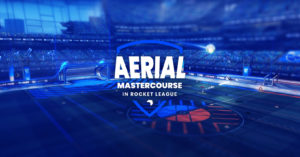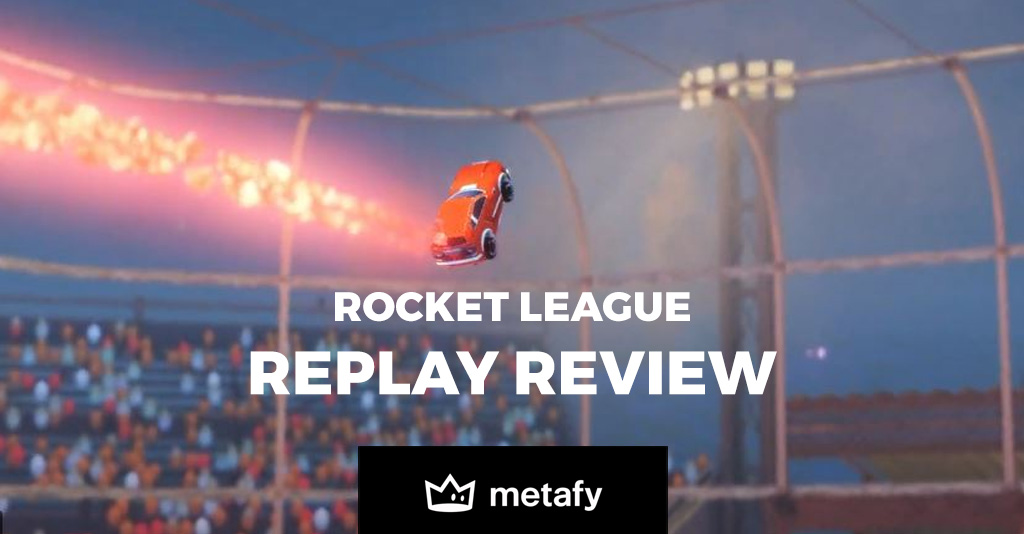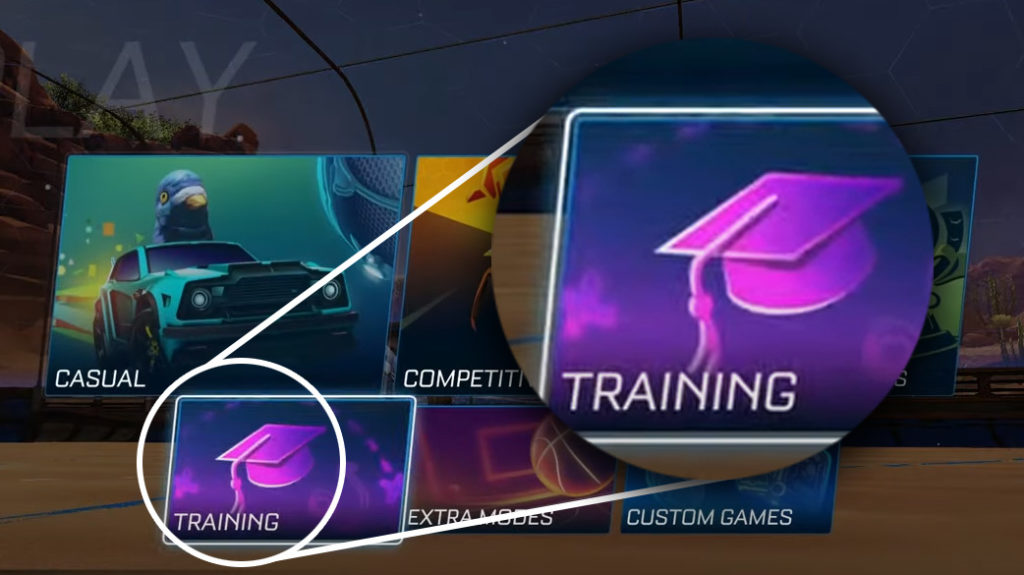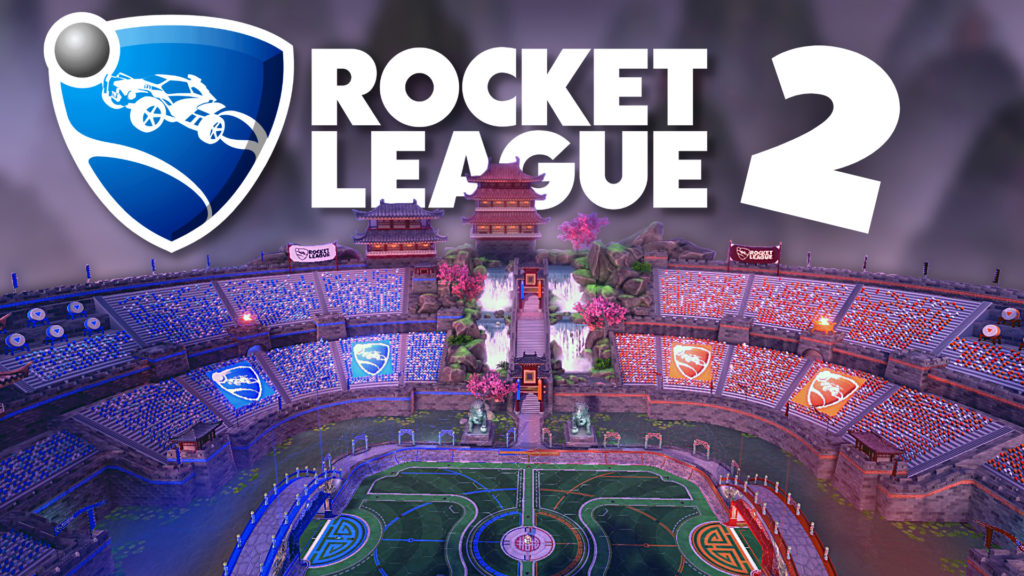Regardless what rank, playlist or region you play in, I’m sure you’ve encountered your fair share of toxicity in Rocket League.
I’m sure the vast majority of players would prefer a game without toxicity but it seems unlikely we’ll ever get there. Instead of hoping it will stop happening it might be more helpful to understand why it’s happening.
If you’re somehow not familiar with how popular toxicity is, there are plenty of YouTube videos that cover this topic in detail, but we’ll take a look at some more examples as we go.
Take a look aroundhttps://t.co/nxfKwgHuwN
— SSG Sunless (@SunlessKhan) August 17, 2021
Defining Toxicity
Let’s have a think about what actually causes toxicity in the first place.
The Oxford Dictionary definition of toxicity is a good starting point but I think it’s fair to say that not all toxicity is the same, especially when thinking about it in the context of gaming or Rocket League.
I had the opportunity to chat with Zector about this. He stressed the importance of context. “It’s important to understand a player’s ego and super-ego. These play a part in all of our conscious and unconscious decisions…” he said. “Generally one of the biggest reasons for toxicity, not only in Rocket League, but in most games, is due to many of our innate psychological defense mechanisms, mainly displacement – that is, when you redirect shameful thoughts to more appropriate targets.”
To further illustrate this, he expanded with an example: “Imagine a son who hates his father and the relationship is broken down, but instead of taking it out on him he goes to school and bullies another kid and does harm to others. He has basically turned his anger and his hatred from his father to an easier target.”
You can see the core problem is between the son and father but a third party (in this case, the kid that gets bullied) is the victim of that problem, even though the kid has no involvement in the original problem.
Bringing this back to Rocket League, a large majority of people hate to lose. When they start to lose, instead of taking it out on themselves, they will instead take it out on others. It makes logical sense as you’re unlikely to be toxic to yourself. Plus, most of the time your ego won’t allow you.
I thought it might be helpful to have a simple scale to help us better discuss the topic:
Level 1 Toxicity: Using quick-chats sarcastically
Level 2 Toxicity: Typing insults about the gameplay
Level 3 Toxicity: Typing hate speech about the person
Each of these levels have their own unique nuances but you should notice a clear distinction from Levels 1 and 2 compared to Level 3.
The first two target the player’s gaming skill but the third one targets the person. It might sound obvious but no matter what happens in the match, no one should ever get to Level 3. It’s wrong, against Rocket League Terms and Conditions, and creates an awful experience for all players.
I don’t think that this is a green light to use Level 1 or 2, but it does add a scale to the seriousness of what it can lead to.
We're writing a in-depth article on the psychology of toxicity in Rocket League, touching on topics such as 1v1, demos and teammates.
— GamersRdy (@GamersRdyHQ) August 17, 2021
If you have stories, clips or screenshots that highlight your experience, please share them to get featured.
We tweeted out a request for the community to share moments they have experienced around toxicity. There were plenty of examples. Most notably, community figure and demo lover (ranked 2nd in the world for total demos in Rocket League) ‘Woody’ got in the front seat to share his first hand experiences:
Oh boy… This is gonna be a long thread boys. I got you covered though.
— ???????????????????? (@its_woodyyyy) August 17, 2021
Here are some examples of toxicity:
Examples of Level 1 Toxicity:
I don't have many stories of 1s toxicity but someone one told me to stop ball chasing… ????
— Stewart (@Stoozo_) August 17, 2021
Examples of Level 2 Toxicity:
daily justice post: blue won 5-4 pic.twitter.com/3hPxMa7r5w
— GamersRdy (@GamersRdyHQ) August 16, 2021
Examples of Level 3 Toxicity:
— ???????????????????? (@its_woodyyyy) August 17, 2021
Where does toxicity come from?
Now that we have an agreed definition and examples of what toxicity looks like in practice it will be good to understand how toxicity emerges in the game.
We conducted three Twitter polls and got several hundreds replies asking the following questions
1) What triggers you the most in Rocket League?
Results:
What triggers you the most in Rocket League?
— GamersRdy (@GamersRdyHQ) August 19, 2021
2) What does your opponent usually say when you demo them in Rocket League?
Results:
What does your opponent usually say when you demo them in Rocket League?
— GamersRdy (@GamersRdyHQ) August 20, 2021
3) What triggers your opponents the most?
Results:
What triggers your opponents the most?
— GamersRdy (@GamersRdyHQ) August 21, 2021
So what leads to someone being triggered and becoming toxic?
There are two ways someone usually gets triggered: game-based events and real-life events
Events that happen in-game:
Here are the three most common moments which cause toxicity:
1) Opponents bumping/demoing you.
2) Teammates accidentally bumping you, ball chasing or whiffing
3) Opponents being lucky in 50/50s, pinches or positioning
Let’s assume that when you load up Rocket League you’re in a good mood, excited to play a few games of car soccer.
In the first match, you end up losing in overtime because your teammate missed an easy save.
The second match, you end up making a mistake and go down a couple of goals resulting in an early foreferit by everyone in your team.
The third match is now going to have the pressure and frustrations of the previous two. This time your teammate accidentally bumps into you and in the confusion, scores an own goal after a poor 50/50 in the midfield.
See where this is going? It’s the circumstances of the game that have led to your frustration boiling over through an unlucky moment in a match, rather than just one moment in one game.
Most people can be patient and move on from a mistake or two, but once it happens regularly that’s when it gets to people.
Are demos and bumps really that bad?
Jumping back to my conversation with coach Zector, he explained his thoughts on the topic of physical play. We chatted over why people get so toxic from demos.
He explained, “Because it takes away control and this causes harm to our egos. In response to this, we begin attempting to defend it and make excuses, even if that means sacrificing our rationale. The second you take that control away is the moment people feel it becomes hurtful to our ego.”
Digging deeper, this also touches on a defense mechanism called ‘reaction formation’.
Basically, your emotions and impulses that are going through an anxiety-producing event are mastered by exaggeration of the directly opposing tendency.
So in the case of Rocket League, you might tell yourself that you’re not actually being toxic but you’re just having a bit of fun when actually that is a major reaction formation. We might try and convince ourselves that it’s helping and toxicity is actually good, when actually if we think about it rationally, we know it’s not the case.
Should you ever use toxicity?
If your aim is to win ranked in Rocket League then there might even be an argument to use Level 1 Toxicity towards *your opponents* in order to try and tilt them.
I certainly wouldn’t suggest doing this because chances are it would backfire and create more artificial pressure on yourself. However, the argument is there. Ranked modes are not there to be nice to your opponents – it is, after all, a competitive game.
There is also one more variable to think about: how well do you know the player?
If it’s the first minute of a game and they’re complete strangers, then you’ll respond very differently compared to if you’re playing with your friend. In that case, using quick chats sarcastically wouldn’t even be on the scale of toxicity.
Events that happen in real life:
All of that may be enough to trigger someone but there are also real-life events such as the person’s life or psychological state which will increase the chances of them being toxic.
If someone is in a difficult family situation, maybe they failed an exam or have financial problems… the list goes on and some people might react badly to those circumstances. Again, this doesn’t justify their toxicity but might explain why they are seemingly being triggered so easily.
On a similar note, age will also make an impact. We know that ‘sound decision-making is not fully developed until early adulthood, usually in a person’s 20’s. This is because the brain’s pre-frontal cortex has not fully developed yet.’ So our emotional response to something happening (ie: an accidental own goal) will increase the chances that a younger player to get triggered and respond in anger.
Real people with real psychological disorders
Finally, there is a psychological aspect of toxicity called ‘Intermittent Explosive Disorder’ and this is linked with the impulsivity and disproportion of what is happening.
To quote Dr Todd Grande, ‘Intermittent Explosive Disorder features a failure to control anger impulses, which become anger outbursts. Physical aggression and verbal aggression can potentially lead to a diagnosis as well as destructive aggression.’ In other words, if the player is reaching into Level 3 Toxicity, there could be a case for a diagnosis.
The reason I’m bringing this up is that we need to remember that every interaction we have in a match will have real people behind the screen. We have no idea what is going on in that person’s life, nor what they’re at psychologically. Of course, this doesn’t justify the outcome of their behaviour, but it will help understand why they are reacting the way they do as well as giving you an extra reason to respond in a more thoughtful way.
What can be done to reduce toxicity in Rocket League?
As with all these sorts of articles, the hardest question is to say, ‘Ok, so what now?’
It’s clearly not as simple as saying, ‘From now on I’m never going to be toxic’ or ‘I’ll never be triggered by someone else being toxic’ as we know that’s not realistic. But what we can do is think about how we respond to each situation.
How you can stop being toxic?
Here are some suggestions to help you be less toxic:
- Accept that others play differently to you.
Demos and Bumps are part of the game and telling someone to ‘stop tryharding’ or ‘don’t demo it’s cheating’ is more of a way you are unintentionally telling them you can’t keep up.
Controversially, ‘luck’ is technically quite a rare part of the game. Sure, a ‘lucky’ 50/50 can go straight into the net vs hitting the post, or the ball bouncing in the corner at the perfect angle to go into the goal… but on the whole, you’ll see that you can increase your own ‘luck’ and decrease your opponent’s ‘luck’ by reading the play, improving your car position and working on your mechanics.
If it really is luck then you’ll also have your fair share of it. - Don’t use the ‘forfeit match’ option unless it makes sense to do so.
The general rule is if you still have half of the game to go and you’re less than 2 or 3 goals behind, a comeback is still possible. That number should be higher in 2s and even higher in 1s.
Of course, if you have 30 seconds left and it’s 5-0 then it does make sense that you just want to move on to the next game. - Pull your team up, don’t tear them down.
Unless you’ve never made a mistake in Rocket League then you should never push your teammates down when they make a mistake.
Sometimes, it will be possible to make a quick suggestion like, ‘hey buddy, try not to double commit as much’. Depending on their mood, you might get a positive response. But telling them, ‘you’re a moron for double committing’ is never going to help.
How to deal with others being toxic?
Here are some suggestions of how to deal with people who are being toxic?
- Convert it into an observational social experiment.
This idea works surprisingly well. All you need to do is take a screenshot or two and make a fun little compilation of all the best ones you collect to then share with friends.
I’ve found that it helps see the funny side of it, especially with Level 3 toxicity coming your way. You’ll find that it’s easier to be calm about a situation. - Never respond by typing.
It doesn’t matter what they say, even if it is clearly false. If someone is Level 2 or 3 toxic towards you, you’ll only get sucked in and be more frustrated for the next match. - Use the ‘mute player’ feature.
Of course there might be a downside to that if you’re needing to communicate with them such as kickoffs, but even then it might not be needed if you know who’s going for what. - Keep in mind the ‘Events that happen in real life’ section we talked about earlier on.
It might help you be more sympathetic or pity towards a situation which in turn will make you feel less toxic.
What can Psyonix (Epic Games) do about it?
Finding a scalable solution to reporting players is really tough.
Rocket League has millions of games every day and likely has thousands of individual Level 3 Toxicity reports. If the players are smart, they’ll use a keyword alternative in text chat (ie: use 5 instead of S, etc.) to get around some of the auto-report bots. Other in-game events such as intentionally scoring against your own team are also near-impossible to monitor. So what can our game devs do about this?
If we look at some other games for inspiration, such as CS:GO or League of Legends, they have a report system that accumulates multiple reports of a player into increasingly severe punishments. A similar system could also be used for Rocket League. Imagine if a player got reported by 10 players in a 12 hour period. The number of cases would be far lower than a default one person report so human intervention could be made to manually review.
Punishment could involve chat bans or permanent bans but there could also be a ‘tier’ system. Players would all be placed in a Good to Toxic tier. The more reports you get then you’d eventually fall into the Toxic tier where you’d only end up playing against other ‘Bad’ players. This could include keywords or matches left mid-game. Over time, you would filter through players who were generally well behaved not be mixed with those who were toxic.
There could also be a proportionate weight to each report you give. If you only reported one player a day it would have more weight compared to if you reported 10 players.
Simply knowing there is a better reporting system out there might be enough to start to reduce the Level 3 Toxicity we see in Rocket League.
Ultimately we’re playing a game for fun and competition but that should always be done in a way that is not hateful towards other players. Next time you see someone being toxic, think of everything you’ve read, and now that you better understand why people are toxic then maybe you will be able to respond in a different way to how you’d normally react.
Just like any other skill in life, it takes time and practice to improve it, but it is possible, and it certainly is worth it, even if it’s just for your own sanity and enjoyment of the game.
Thanks for reading this article, and I hope you guys found something helpful. Again, if you’re looking to hire a coach you can find me here as well as other coaches and courses.







